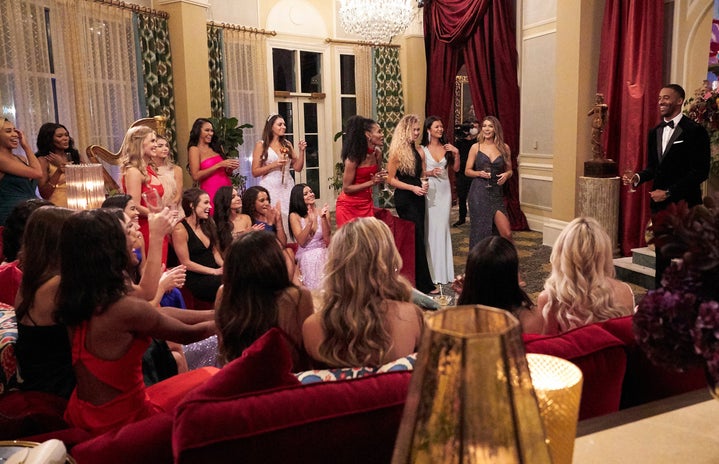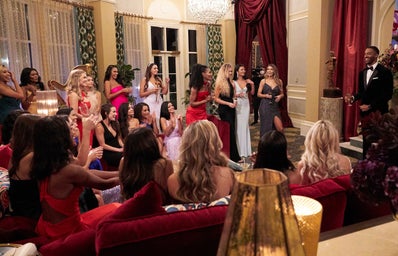Reality TV shows such as “The Bachelor” mirror society’s culture and values — raising awareness of important issues in society.
While the franchise has been previously been accused of racism, the recent controversy surrounding cultural appropriation on “The Bachelor” calls into question how our 21st-century society responds to racism.
The controversial social media posts of Rachel Kirkconnell, a frontrunner of this season, have sparked much public attention. Kirkconnell posted pictures on her Instagram at an old southern plantation-themed sorority party, was called out on Tik-Tok for supposedly making fun of a classmate for dating black men and has liked racist posts on Instagram.
The situation was made worse when long-standing host Chris Harrison defended Kirkconnell’s actions in an interview with Rachel Taylor, the first Black Bachelorette in 2017. When questioned by Taylor regarding Kirkconell’s questionable social media, Harrison said, “ Is it a good look in 2018 or is it not a good look in 2021, because there’s a big difference. I don’t disagree with you. You’re 100 percent right in 2021. That was not the case in 2018. I’m not defending Rachael—I just know that 50 million people who did that in 2018. That was a type of party that a lot of people went to.”
Both Kirkconnell and Harrison have since apologized, expressing their remorse for offending anyone and acknowledging that further education surrounding this topic is necessary.
Kirkconnell posted on Instagram, stating, “I don’t think one apology means that I deserve your forgiveness, but rather I hope I can earn your forgiveness through my future actions.”
Harrison also posted two separate Instagram apologies and has even stepped away from “The Bachelor” to “ensure our cast and crew members, to my friends, colleagues and our fans: this is not just a moment, but a commitment to a much greater understanding that I will actively make every day.”
Many past Bachelors and Bachelorettes have spoken out regarding this controversy, defending Taylor and holding both Harrison and Kirkconnell accountable.
This recent controversy is not only limited to the entertainment industry — it raises very real and relevant points for others outside of that sphere.
In a 21st-century society, globalization is inevitable; traditions and cultures are no longer simply limited to the members of that particular group. With this mass access to cultures and heritages, members of the public choose how to respond to having diverse cultural backgrounds in their lives.
Cultural appropriation is defined as using or taking any part of a minority culture in a way that shows a lack of awareness of their past history and/or oppression.
What is the response to cultural appropriation? How can individuals do better and ensure that their social media is not offensive or questionable? Is it acceptable to wear culture as a costume and play dress-up with their past? Or do they celebrate their past and recognize the struggles others have faced?
It’s imperative to think about these questions before one “uses” or appropriates aspects of cultures that are not their own. Take the time to be conscious of the difference between celebrating and highlighting the culture and diminishing or poking fun at it. Educating oneself on different cultures and heritages deepens the appreciation of diversity.
While mistakes have undoubtedly been made, this “Bachelor” controversy has shed light on such a critical issue and hopefully can serve as, in Bachelor Matt James’s words “an inflection point that results in real and institutional change for the better.”


